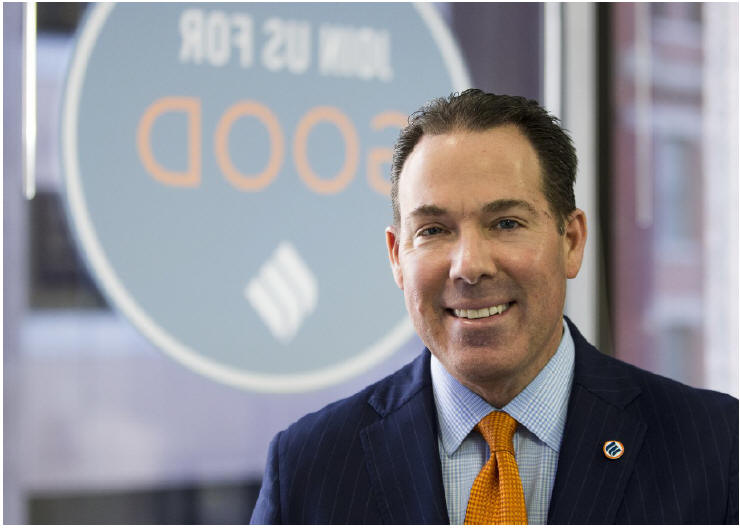Rivers said that the change will be the largest conversion in banking history, but it would not dampen Eastern’s commitment to its North Shore roots. For one thing, he said, the office building at the end of Market Street still contains 500 of the bank’s nearly 2,000 employees. And Rivers said that while Boston may be the bank’s official corporate headquarters, “I still consider Lynn our real headquarters.”
Rivers said the bank needed to grow much more to be competitive with other institutions.
“Being committed to a mutual structure, legally, limits your growth,” he said. “In the last three years we had record earnings, but our growth was not fast enough to keep up long-term with our competition.
“We have grown organically and through acquisitions every few years, but lately we haven’t been able to do that. The only way we could was to become a public company.”
The goal, Rivers said, was to grow the bank from $12 billion to $40 billion in assets in 10 years. But he said that the institution is not planning to widen its scope beyond New England.
“Most of it (expansion) is going to be where we are,” he said. “We’re most concentrated on the North Shore. We’re pretty thin in other parts of our market. We have to fill in. If we moved to the western part of the state, it would be an extension of our Metro West franchise. If we expand to other states, it would be right along the borders. You won’t see us go too far afield. It makes it easier to stay close to our customers.”
However, Rivers said, the decision was still very emotional for him, given his often-stated endorsement of mutuality.
“It was very tough,” he said. “I initiated the conversation and the board of directors started talking about it 11 months ago. We deliberated the whole second half of last year. I had come to the conclusion that we could no longer remain in a mutual structure and took it to the board.
“It was a tough, emotional decision, but ultimately the thing that’s most important to me, and the others, is that Eastern survives. We want to stay around for another two centuries.”
Eastern, as well as being among Lynn’s top employers, has also been one of the city’s leading philanthropic institutions through its charitable foundation. Rivers does not see that changing.
Eastern’s foundation will get four percent of this fall’s projected initial public offering (IPO) proceeds, which will bring its assets up to $180 million, according to some estimates. Rivers believes the move will bring Eastern closer to the Lynn and North Shore community.
“The amount of money we have philanthropically will never be greater,” he said. “I don’t think our commitment to the community can be stronger, not just in terms of philanthropy, but in the number of employees we have. Our advocacy to social justice will be just as strong.
“As we spread our franchise down to the South Shore, and to New Hampshire, some of our senior leadership on the North Shore might lessen, but our largest employee base is Lynn. We are one of the largest employers in Lynn.”
